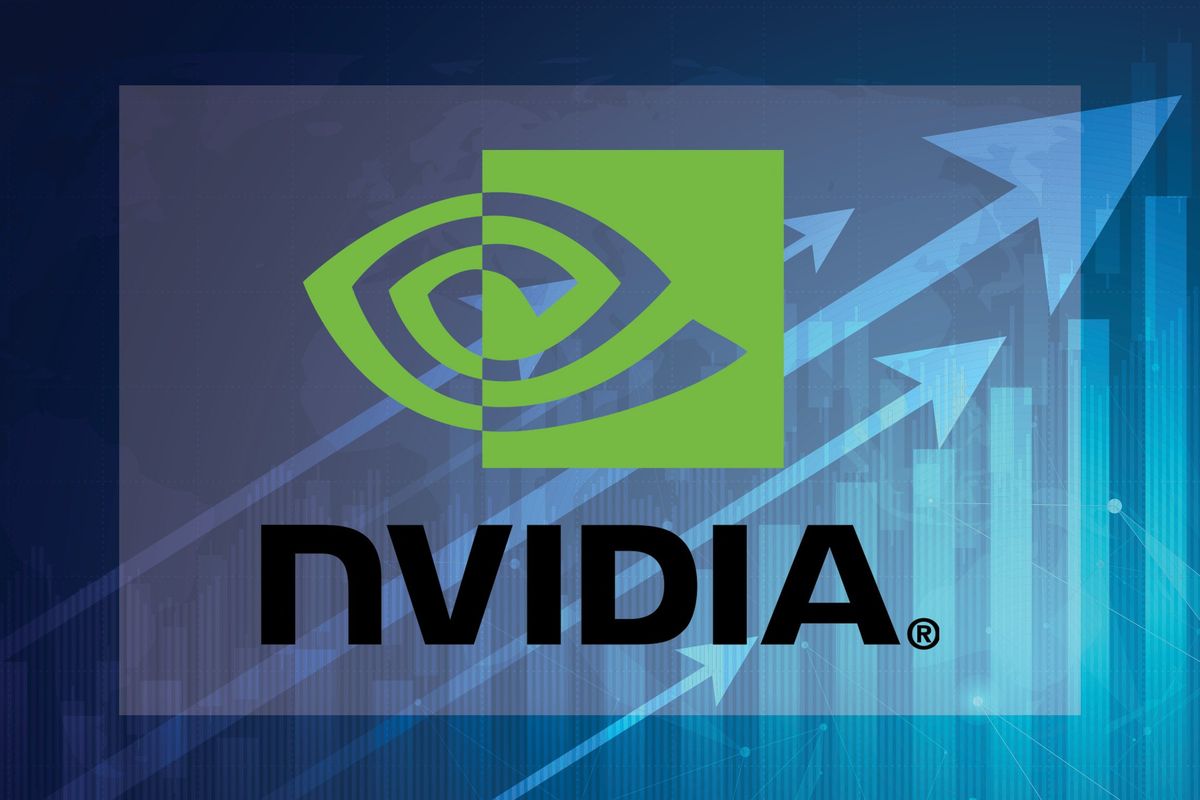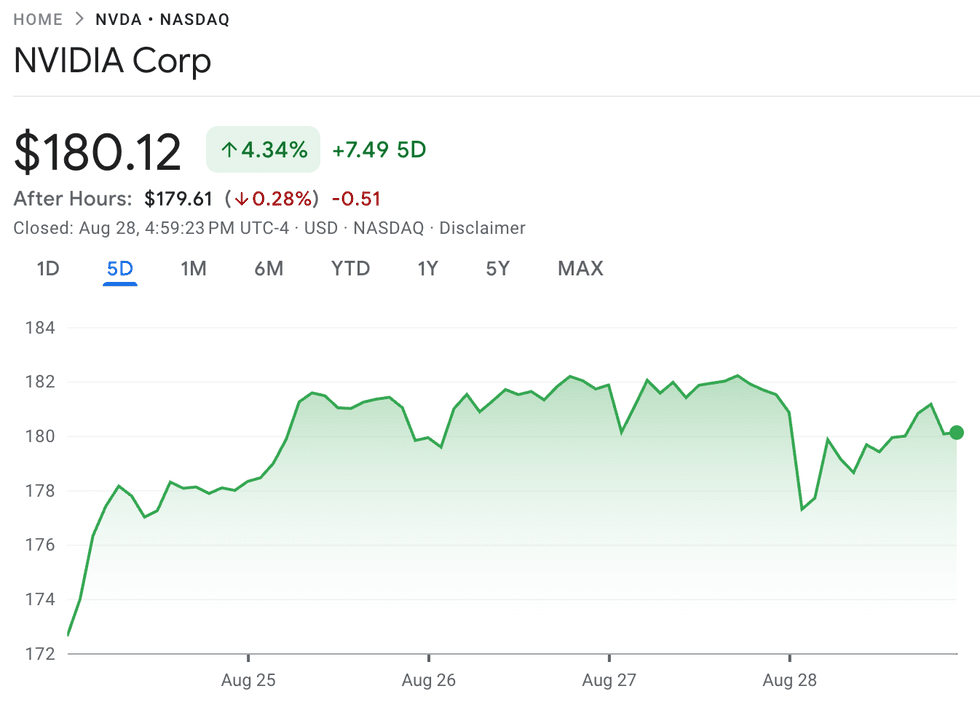NVIDIA Delivers Record Quarter as AI Demand Booms, but China Uncertainty Persists
NVIDIA's latest quarterly results topped Wall Street estimates, but the chipmaker’s future in China, its second largest AI market, remains uncertain.

NVIDIA (NASDAQ:NVDA) delivered another blockbuster quarter, reporting record revenue of US$46.7 billion for its second fiscal period as demand for artificial intelligence (AI) infrastructure continues to surge.
The chipmaking giant said sales rose 56 percent from a year earlier and 6 percent from the prior quarter, marking the ninth straight period of year-on-year revenue growth above 50 percent.
Meanwhile, NVIDIA's net income jumped 59 percent to US$26.42 billion from US$16.6 billion. Its adjusted earnings per share were US$1.05, beating analyst forecasts of US$1.01.
“Blackwell is the AI platform the world has been waiting for, delivering an exceptional generational leap — production of Blackwell Ultra is ramping at full speed, and demand is extraordinary,” said founder and CEO Jensen Huang.
“The AI race is on, and Blackwell is the platform at its center,” he added.
The company’s data center division once again fueled growth as it generated US$41.1 billion in revenue, 56 percent higher than a year ago. Roughly US$33.8 billion of that total came from sales of NVIDIA's GPUs, while US$7.3 billion was from networking hardware that ties together large AI computing systems.
Sales of NVIDIA's Blackwell processors, launched in May, rose 17 percent quarter-on-quarter. The product line has quickly become the backbone of NVIDIA's data center business, accounting for a majority of the segment's revenue.
Wall Street reacts to NVIDIA results
Despite NVIDIA's strong numbers, company shares initially slipped in after-hours trading as some investors fretted about slower growth momentum in the data center division.
Regardless, the stock later pared its losses by turning positive on Thursday (August 28).
Overall, NVIDIA has surged 35 percent so far this year after nearly tripling in 2024.

NVIDIA performance, August 25 to 28, 2025.
Chart via Google Finance.
The company is guiding for revenue of US$54 billion, plus or minus 2 percent, in the October quarter.
However, that forecast does not assume any shipments of the H20, a chip that was designed for the Chinese market, but is currently sidelined by export restrictions.
Colette Kress, NVIDIA's CFO, told analysts the company could ship between US$2 billion and US$5 billion worth of H20 processors this quarter if geopolitical conditions allow.
No H20 sales to China
NVIDIA confirmed it had no H20 sales to China in its second quarter.
Instead, it benefited from releasing US$180 million in previously reserved H20 inventory to a customer outside of China, boosting reported revenue by US$650 million. The company previously said that the lack of H20 shipments cost it up to US$8 billion in potential sales in the second quarter alone.
Huang met with US President Donald Trump earlier this summer to lobby for licenses to export the H20, a chip that was developed specifically to comply with US trade restrictions.
Under a tentative deal, NVIDIA agreed to pay 15 percent of China H20 revenue to the US government in exchange for export approvals. However, the arrangement has yet to be codified into a formal agreement.
Blackwell and the China dilemma
Beyond H20, attention has shifted to NVIDIA's newest flagship processor, Blackwell.
On Wednesday’s (August 27) earnings call, Huang said there is “a real possibility” of bringing Blackwell to China.
“We just have to keep advocating the importance of American tech companies to be able to lead and win the AI race, and help make the American tech stack the global standard,” he said. Huang estimates that China represents a US$50 billion opportunity for NVIDIA this year, with growth of 50 percent annually. He argued it is better for Chinese AI firms to use NVIDIA chips, even if modified, rather than being forced to rely on domestic alternatives.
Trump, however, has expressed caution. Speaking at a press conference earlier this month, he said, “The Blackwell is super-duper advanced. I wouldn’t make a deal with that.”
However, he said he could allow a “somewhat enhanced in a negative way” Blackwell chip to be sold to China, further suggesting that such a version could be slowed by 30 to 50 percent to comply with US restrictions.
Even without China sales, NVIDIA maintains a bright outlook.
Huang told analysts the buildout of AI infrastructure is still in its early stages, further projecting that global spending on AI infrastructure could reach US$3 trillion to US$4 trillion by the end of the decade.
Furthermore, large cloud providers, which remain NVIDIA's biggest customers, have announced plans to spend tens of billions of dollars per quarter on AI infrastructure, ensuring a steady pipeline of demand for the company's chips.
Don’t forget to follow us @INN_Technology for real-time news updates!
Securities Disclosure: I, Giann Liguid, hold no direct investment interest in any company mentioned in this article.
- AI Market Update: Q3 2024 in Review ›
- How to Invest in OpenAI's ChatGPT (Updated 2024) ›
- 12 Generative AI Stocks to Watch as ChatGPT Soars ›
- 5 Canadian Artificial Intelligence Stocks ›
- AI Stocks: 9 Biggest Companies ›


